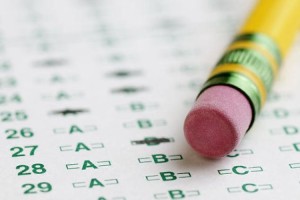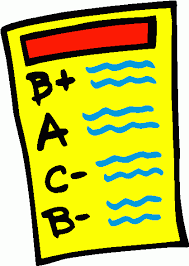Editor’s Note: This post was previously published in Insights on Residency Training, which is hosted by the New England Journal of Medicine and NEJM Journal Watch.

Ahmad Yousaf, MD, is the 2015-16 Ambulatory Chief Resident in Internal Medicine at Rutgers New Jersey Medical School.
What is wrong with medical students nowadays? This question has been circulating in the academic medical world for years. As an intern and resident, I would hear complaints about how ‘unready’ they seemed. The grievances often include adjectives like ill-prepared, lazy, or uninterested. The complaints have burgeoned over time, and the examples are numerous in my institution: Students show up late to rounds with coffee in their hands; one med student had the gall to go directly to the attending and request early dismissal because he ‘had nothing to do.’ The problem seems to permeate all schools. Beyond the effects of this behavior on student culture, it results in underprepared interns and residents.
As a chief resident, I have set aside weekly teaching conferences with the students, and I think I have begun to better understand the issues. Just 5 to 10 years ago, medical school expectations were high. You were expected to show up early to rounds, leave late, be at the beck and call of your resident, and have absolute respect for an attending physician. Respect for the process of education was standard. You dressed appropriately. You studied to impress, and you came to rounds prepared to try your best. So why have these standards changed recently? Because none of these qualities are rewarded appropriately in a student’s medical school ‘report card.’
Medical student grades, and therefore class ranks, theoretically are based upon two major components: clinical evaluations and test scores (i.e., shelf exams). But the truth is, in medical education today, evaluations completed by residents and attendings of students on their medical teams are essentially useless. Most evals result in clinical grades that are essentially the same, no matter how hard-working or lazy a student was on the floors. Many reasons are put forward to explain why this occurs, but I think the most important is ‘evaluation burnout.’ Academic medicine is riddled with so many unneeded and redundant evaluations that most physicians do not put the time or mindshare into making them useful. This results in clinical scores that do not help discern who put forth the work to excel and who just showed up because they needed proof of attendance. It is for this reason that the test scores are weighted so much more heavily than clinical evaluations in the eyes of the average medical student.
“Why get to work early and learn about my patient when my test score and a review of ‘high yield’ facts from a review book will further my career more effectively than learning how to do a good physical exam?” “What is the point of having a well-prepared presentation for rounds when I will get the same score as my colleague who spent the morning going through review questions?” “What is the point of impressing my attendings when all that really matters is my grade and class rank?”
These questions guide the behavior of students, and I cannot blame them. Medical school is competitive. Long-term career plans depend on more than whether a resident team thinks a student is not putting quality time in on the wards. The finger must be pointed at our medical education system, which values test taking over clinical knowledge and skill. How can we expect to produce a generation of quality practitioners without ensuring that we instill the value of actually practicing that theoretical medicine they learn in textbooks and are quizzed on in exams? We somehow have to shift the tide of education toward, or perhaps back toward, an environment in which becoming a physician means more than a number or letter grade or a class rank.
Is this the era of the ill-prepared medical student?
Do you agree that students are ill-prepared? Do you see a solution to the problem of students being less interested in the work on the wards?




I totally agree.
I am a senior consultant physician and have been working in the Netherlands, UK and New Zealand.
I have noticed that the attitude of medical students AND interns in the first clinical years is more focussed on getting there with the least possible input.
I am not in the position to judge the current medical education in the universities, but there is definitely a difference in preparedness for the clinical time between today and when I was studying. The fact that getting to a diagnosis is so much easier now with the help of new technological achievements takes the urge away for a junior medical practitioner to achieve excellence in clinical skills like taking a good history and doing a proper physical examination.It is probably easier toi fill out a form and request a test or specific imaging ,than sitting down and trying to solve a medical problem by deduction and analysis Maybe the workload does not offer
enough time to train young doctors to get enough experience in these skills. I think that medicine is not only a science but also an art, which can only be mastered by hands-on training
First and foremost I think that there´s a need to review and innovate medical undergraduate education in order to form better medical students not only with required “competences” in skills and qualifications every practitioner needs to suceed in the fierce clinical environment, but to grasp the social habilities needed to face with complex emotional problems that more frequently presents our patients.
I see a problem here: As far as i know, you can correct me if I am wrong: medical students by law (as in England) can not see and examinate patients until they get their medical license, if so, How do you expect students get dress properly, take attention on wards and visiting the patient and make their best effort?
Also I see a solution here: Put more accent (in convenience with the medical school) on the grades or marks obtained in clinical practice (I suggest the standard in Mexico: 60% clinical practice, 40% written examinations) in order to elevate not only the grades and student ranks, also the interest in clinical practice.
Maybe the interest on graduate as soon as possible, in order to obtain a job that can afford the student loans, goes on down the interest in clinical wards and increase the interest on ending the (as far as I know) 4 years of fierce college.
Comments in reply, are welcome!
With regards: Hiram M. Trejo Ribéry.
I been teaching with pre and post-graduate medical students., since almost 30 years. I have been seeing , that the attitude of Students, has been changing . Some important characteristic that we had some years ago, like, the love for studying and to have always better knowledge and to have new skills, thinking ,always , like their most important goal, to be e betterPhysician , it has been disappearing , and now , most students are focused only to study only for evaluation and exams.They feel OK, having only the minimal evaluation needed to access to next Stage and they forget, that the most important Goal, that they must attain, it is to be an Complete Physician and not , to be only an student, that can hardy to approve the next evaluation or exam., and to finish their career , as soon is possible.
I think, that , besides to re-think the Programs used in Medical Teaching, by Universities, it is important, to remember, that being important, that Universities are the places, where Medicine and many others careers must give to students, but, the most important rol of Universities, it is to teach to students, how to improve the Intelligence, curiosity,love for continuing medical studying, improving their responsability, and the desire to be always growing in the career they choose, and to improve too, Imagination.I think,that in some way,the Universities, lost these important issues.What we want, it is that our students, could be fascinated again, with this beautiful profesion.It is not easy to be a physician now, because , our patiens has changed too. Now, they are more clients than patients, and because of that, they are looking for results.Does not matter, how difficult can be the Diagnostic of some Illness or that the Disease they have , can not be cured, like many cancers or Auto-Inmune Diseases or others Diseases , like Multiple Sclerosis etc etcNot, they need only the better result they need, and does not matter that sometimes, it is impossible to stop totally the disease they have.In some way, because almost all patients have access to Internet, is very frequent , to see patients,looking for results, they saw in Internet, in Web pages, without serious Medical advise
As a current 3rd year medical student I’ll give my perspective on both the basic science years and the clinical years.
Basic Sciences:
I think it is unfair to say that we are uninterested in learning medicine because we don’t want to learn fact “A”, or because we want to study for our boards. As students we are tasked with learning an INFINITE amount of material that surveys every specialty (I believe MUCH more than physicans of old had to learn, at least on the basic science level. 30 years ago, how many antibiotic classes were taught during medical school? How many exist now? How much neurophysiology in the reward addiction circuit did you have to learn, the genes involved (TAAR1) etc? Did you have to learn the neuroimaging findings associated with ADHD/Schizophrenia, or the latest research on schwann-cell axonal regeneration?). New science is discovered everyday in everyfield, and that knowledge is added to the same 2 year time given to learn it. I offend the immunologist because I didn’t have time to learn the 8th most common mutation of SCID, not because I was partying, but because I was focusing on learning more indications for ACE Inhibitors, because it was more important from a general standpoint.There is a finite amount of material one can learn per unit of time and sometimes, its better to know 15 facts very well than to somewhat know and confuse 25 facts. Board review materials acknowledge what is essential from every specialty and gives us the opportunity to do well on an exam that, rightfully or not, determines what specialty we will be permitted to pursue.
Clinical training is a joke (obviously site and attending dependent). Medical students have no role in our current “We MUST SEE 255757857 patients/hour ” system. We slow things down because we cannot do H/Ps or arrive at conclusions to the same speed as those with experience, and because of this, we don’t get the opportunity to try, fail, practice, and learn. Teaching seems to be done by convenience, ie-following doctors around while they do everything and pimp us-ie shadowing. I think more concrete role definition should be in place for preceptors. We should be practicing how to BE DOCTORS. If you are a hospital attending/resident, assign us patients to see and perform the physical, observe us do the physicals, give us time to formulate our thoughts and consult our books and come up with an A+P (We will be slow at first, but our efficiency will improve by practicing the process and being critiqued/advised , not by memorizing what we saw you do). As an Outpatient preceptor let us see patients by ourselves, if you find yourself waiting on us, then limit the amount of patients we see. I would much rather see 2 patients in an hour and do everything by myself then follow you for 20 patients.
Really, I totally agree with al the facts that some students present,but , being Professor of Undergraduates Students for almost 30 years, the fact, is that that the students are not well prepared.I know there are a lot of explanations,but when I have to be with students near to be Physicians, I been seeing, in the lasts years , that the Knowledges, Skills and Criteria,are not enough to face a patient with a minimal complication (not having a rare disorder), but only when the patient presents with a variation of a very common disease=EjCoughing only during night with minimal dyspnea,or present to ER, with Epigastric Pain,and pallor, and they do not rule out possibility of MI of Posterior Wall of Left Ventricle etc etc This is a very important issue, and what we need, it is that Medical School and Universities, must check the way how we are teaching Medicine.
I left Undergraduate teaching and now I am only teaching Post-Graduates Phsysicians, but , the problem still persists. It is important to make an complete and intelligent review of ours Programs.But ,I think, that ,we must define the Profile of the Physician we need but also, the Profile of Medical Students.Not all students, besides the good performance in High School,can be physicians,sometimes for personal reasons.We do not know anything about personality-responsability-love for continue learning-ethics etc etc
Absolute Truth ,
I totally agree with Ahmad Yousaf, The ” core ” clinical medicine teaching which we tasted in the medical school in India long back in 1980s is no longer practised much.
Evaluation system which is not Objective – less patient oriented – using Models and Images may make the real feel of clinical medicine fading away
This is obviously proven by the low quality of knowledge and clinical skills of new medical graduates compared to the old schools. I have noticed this during my tenure as Resident Physician in hospitals in Jakarta – Kuala Lumpur and Singapore , the last 15 years .